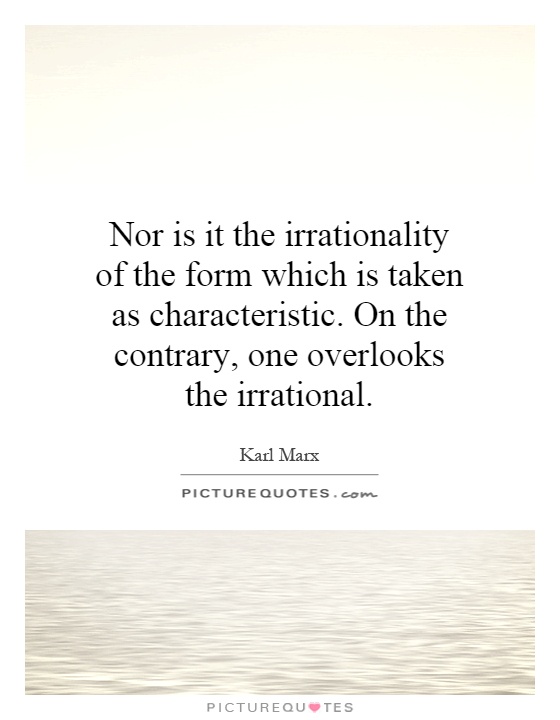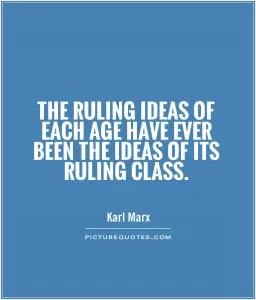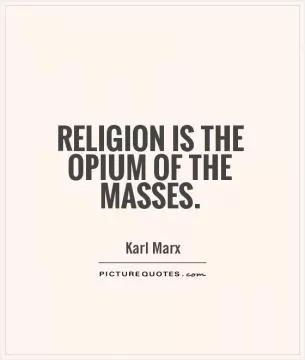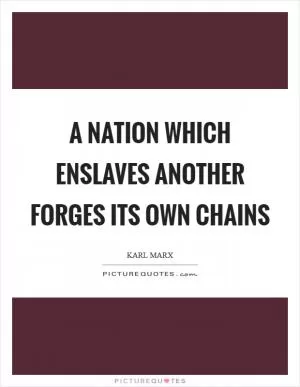Nor is it the irrationality of the form which is taken as characteristic. On the contrary, one overlooks the irrational

Nor is it the irrationality of the form which is taken as characteristic. On the contrary, one overlooks the irrational
Karl Marx, a renowned philosopher and economist, is often associated with the concept of irrationality in his critique of capitalism. However, it is important to note that Marx did not view the irrationality of capitalism as its defining characteristic. In fact, he believed that the irrationality of capitalism was often overlooked in favor of other aspects of the system.Marx's critique of capitalism was rooted in his analysis of the inherent contradictions and inequalities within the system. He argued that capitalism was driven by the pursuit of profit, which often led to exploitation and alienation of the working class. This irrational pursuit of profit at the expense of human well-being was a central theme in Marx's work.
However, Marx also recognized that capitalism was a complex and multifaceted system that could not be reduced to its irrational aspects alone. He understood that capitalism was a dynamic and evolving system that was shaped by a variety of social, political, and economic factors. In this sense, Marx did not view the irrationality of capitalism as its defining characteristic, but rather as one aspect of a larger system that needed to be understood in its entirety.
Furthermore, Marx's critique of capitalism was not simply a condemnation of the system's irrationality. He also sought to uncover the underlying mechanisms and structures that perpetuated these irrationalities. By analyzing the economic relationships and power dynamics within capitalism, Marx was able to identify the root causes of its irrationality and propose alternative modes of production that could address these issues.












 Friendship Quotes
Friendship Quotes Love Quotes
Love Quotes Life Quotes
Life Quotes Funny Quotes
Funny Quotes Motivational Quotes
Motivational Quotes Inspirational Quotes
Inspirational Quotes